(September 22, 2023) I had the pleasure of meeting Thiru Sivakumar Nadesan, more popular as Kumar Nadesan, on a pleasant afternoon at the Business Club of Taj Samudra, Colombo. The Indian cricket team was coincidentally staying at the same venue for the Asia Cup. Although their presence was unrelated to the essence of our encounter, their proximity added an enchanting touch to the ambience.
Taj Samudra Colombo radiates a deep affection for Indians in Colombo, and amidst the opulence of the surroundings, Kumar Nadesan’s arrival only heightened the vibrancy of the atmosphere.
Nadesan, the recipient of the prestigious Pravasi Bharatiya Samman Award 2023, is widely recognised as the print magnate of Sri Lanka. He holds the position of Managing Director of Express Newspapers (Ceylon) (Pvt) Limited, a prominent print and web media organisation. It publishes Virakesari, one of Sri Lanka’s foremost Tamil daily newspapers, amongst other publications. Founded in August 1930, Virakesari stands as the oldest and largest circulating Tamil newspaper in Sri Lanka at 93.

Kumar Nadesan receiving Pravasi Bharatiya Samman Award 2023 from President Droupadi Murmu
“When Gandhi came here, he advised the Indian community to come up with a publication as he found that the diaspora lacked voice in the country at that time. This is how Virakesari started,” Nadesan told Global Indian. Over the years, the publication has diligently catered to Tamil speaking individuals irrespective of nationality and religion.
Apart from being at the helm of all the other publications of Express Newspapers which caters to a wide audience, Nadesan is the director of the Newspaper Society of Sri Lanka, and chairman of Sri Lanka Press Institute (SLPI). Established and operated by the media industry SLPI provides structured training for journalists, encourages self-regulation within the print media sector, and champions a free and responsible media environment in Sri Lanka. Talking about its uniqueness he shared, “We are the first in the world to have people with diverse outlooks all sitting together at one table. Our group includes working journalists, media activists, editors, and publishers, each with their unique perspectives.”
As the chairman of the Press Complaints Commission of Sri Lanka, a self-regulatory mechanism of the media industry, Nadesan heads a simple, non-legalistic system by which people with a genuine grievance about the press can gain quick and easy redress, without hassle.
The Attorney at Law Sri Lanka, has played a major role in addressing the drug menace in the country as the Chairman of Sri Lanka Anti-Narcotics Association. The man of many hats loves being busy and is also the President of the Sri Lanka chapter of the Global Organization of People of Indian Origin (GOPIO). He has been the president of the Sri Lanka India Society in the past.
Unfazed by his accomplishments
When I extended my congratulations to him for the Pravasi Bharatiya Samman award that he recently received, Nadesan displayed remarkable humility, stating, “I was, of course, pleasantly surprised to receive it, but I am uncertain about the reasons for my selection.” As Chairman of the major print media regulatory bodies his efforts to enhance professionalism within the Sri Lankan media industry is unquestionable and quite evident.
In his tenure as president of the Sri Lanka Anti-Narcotics Association, his dedication to the cause has been nothing short of tremendous, reflecting his unwavering commitment to the betterment of the community and the country, which is his home. Despite his impressive accomplishments he remained grounded as he spoke.
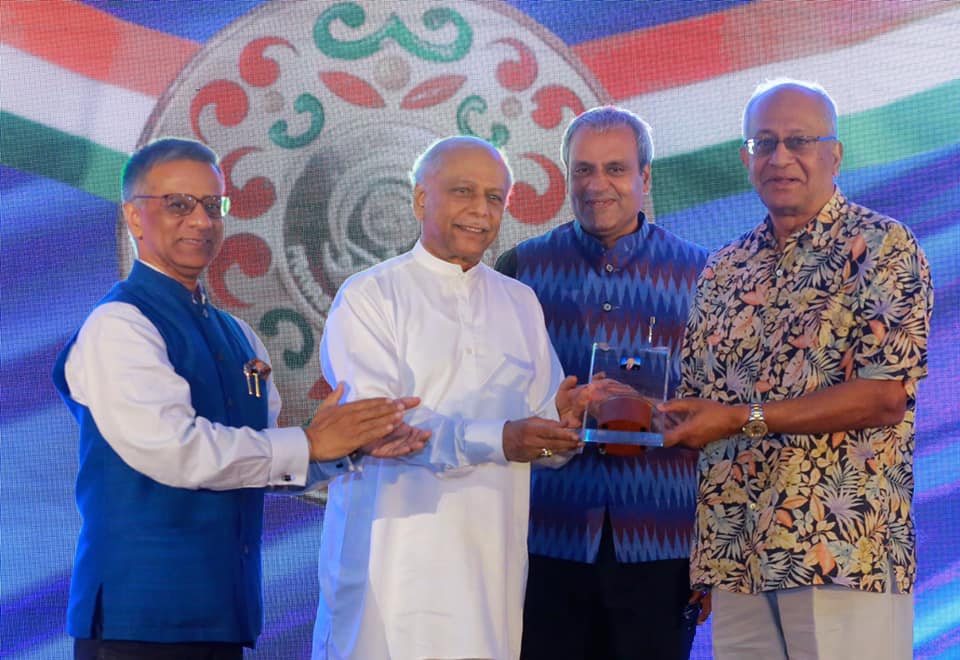
Kumar Nadesan with Sri Lanka’s PM, Dinesh Gunawardena and the High Commissioner of India, Gopal Baglay
After returning from the Valedictory Session and Pravasi Bharatiya Samman Awards Ceremony in Indore, where he received the award from President Droupadi Murmu, his friends threw him a surprise party in Colombo. They had invited the Prime Minister of Sri Lanka, Dinesh Gunawardena and the High Commissioner of India, Gopal Baglay as special guests to honour him. When I mentioned the event to Nadesan, he humbly remarked, “I would have never allowed that if I had known my friends were planning something like that.”
Bond with India
Despite being a fourth-generation Indian in Sri Lanka, Nadesan’s ties with India are deep-rooted. His initial connection with India was forged during his undergraduate years at Loyola College, Madras which he fondly recalled as ‘some of the most cherished days of his life’. “I even served as the student union president during those carefree days,” he said, talking about his tryst with India in the 1960s.
His bond with his country of origin grew stronger, particularly when all four of his sisters were married off to India. His late wife, who was a doctor by profession, also happened to be from India. Nadesan met her while they were students in Madras.
From law to publishing industry
After completing his bachelor’s degree in commerce from Madras, Nadesan went to the United Kingdom to pursue law. Upon his return to Sri Lanka, he was a practising lawyer for two decades, accumulating valuable experience in the legal field.
However, a significant turning point occurred when he transitioned into the publishing industry. His involvement with the Express Newspaper, a position influenced by his family’s business stakes in the publication house, marked a notable shift in his professional journey.
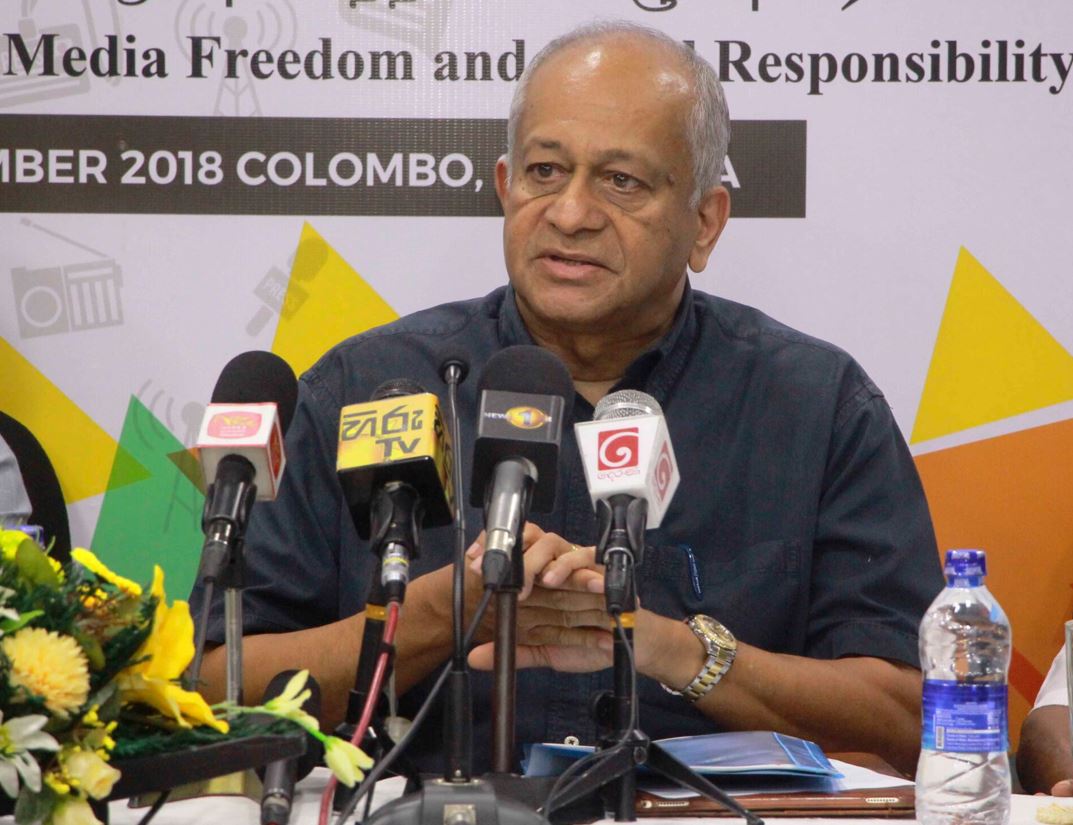
Kumar Nadesan at a media event
This career transition was driven by his belief that through the media, he could wield greater influence and potentially challenge government actions when they are unjust. “Newspaper is an ideal platform to expound whatever ideas you have and help the society,” he says.
Commitment to combat drug menace in Sri Lanka
Talking about his initiatives as the president of Sri Lanka Anti-Narcotics Association, he shared “I am a member of the Rotary Club of Colombo for more than 50 years. Anti-drugs initiatives started off as part of the Rotary project. In 1982-83, we found that drugs were infiltrating Sri Lanka, with young people being the primary target, and realised that something needs to be done to curb the menace.”
The drugs entered the country through the sea, as the fishermen who wondered whether they will ever afford to build a house got into the lure of bringing drugs into the country to earn money. A single consignment of the size of a jam jar of drugs could yield the resources to build more than two or three houses – a tempting proposition.
Considering the future of the country and the well-being of its human resources, it seemed imperative to Kumar Nadesan and his fellow Rotary members to initiate discussions about anti-drug programmes and take action in the sphere. “We conceptualised the idea of fostering human development because, even though drug-related issues may seem minor in scale, perhaps around 1 percent, the impact they create, including robbery and theft, is substantial,” he remarked “Our prisons have been overflowing with individuals unable to pay fines for drug-related offences,” he adds.
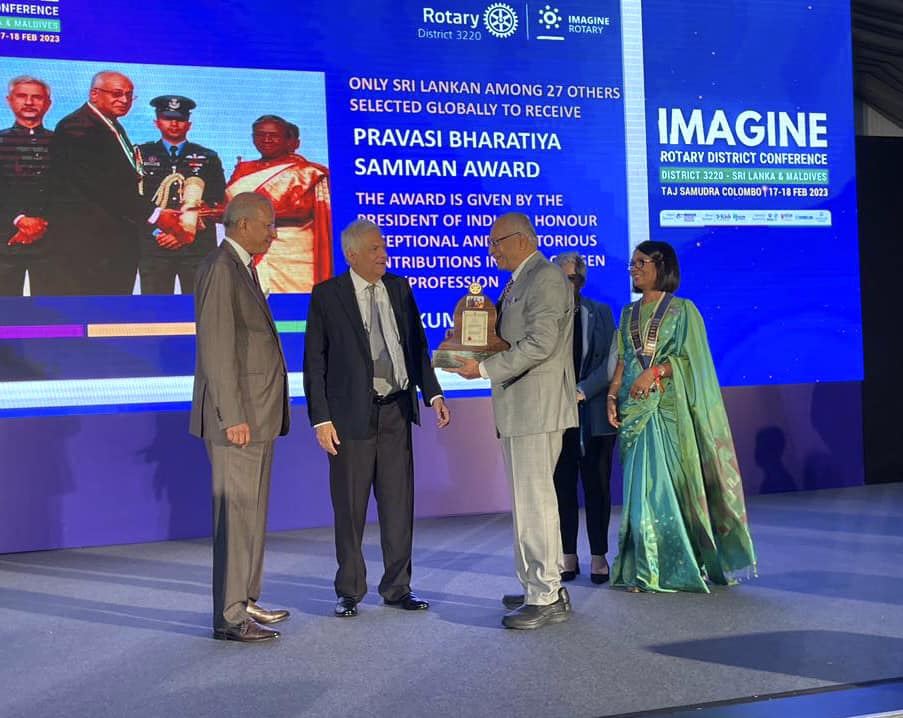
Kumar Nadesan at a Rotary function in presence of President of Sri Lanka Ranil Wickremesinghe
Under Nadesan’s leadership, the initial initiative of the Rotary project proved to be highly successful. Soon after, the Sri Lanka Anti-Narcotics Association was established reflecting his commitment to addressing drug-related concerns in Sri Lanka. The association has done a commendable job over the past few decades. Nadesan received the ‘Service above Self’ award from Rotary International for his tireless efforts.
Purpose – to bridge heritage and history
Nadesan is in the process of envisioning a museum that will encapsulate the rich tapestry of Indian ethos, and the opulent flora and fauna of Sri Lanka. With the museum he aims to serve as a knowledge base of Sri Lanka’s natural beauty, promote the local artisans of the country through a handicraft bazaar and also create a tangible connection to the ancestral homeland for the younger generation of Indian-origin diaspora. Many of them often identify their roots with the picturesque towns in Sri Lanka’s upcountry where their forefathers were brought to work as tea plantation workers.
“The intention is to guide them on a journey back to their origins, immersing them in the rich cultural history, and the earnest pride that once defined the lives of their great-grandfathers in the villages of India,” he remarked.
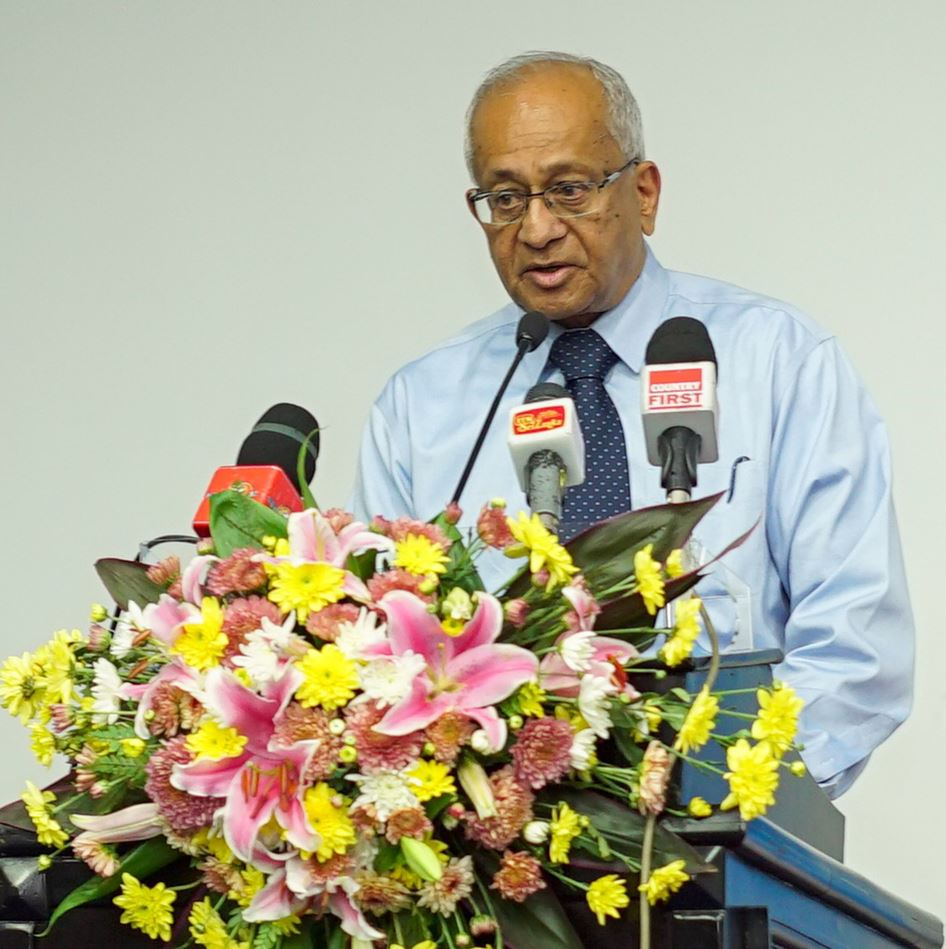
Kumar Nadesan
Kumar Nadesan’s family originates from Trichy in Tamil Nadu. His forefathers were brought by the British to Sri Lanka from India as tea plantation workers. Over the generations, becoming one of the well-known figures in the country is an inspirational success story that Kumar Nadesan exudes.



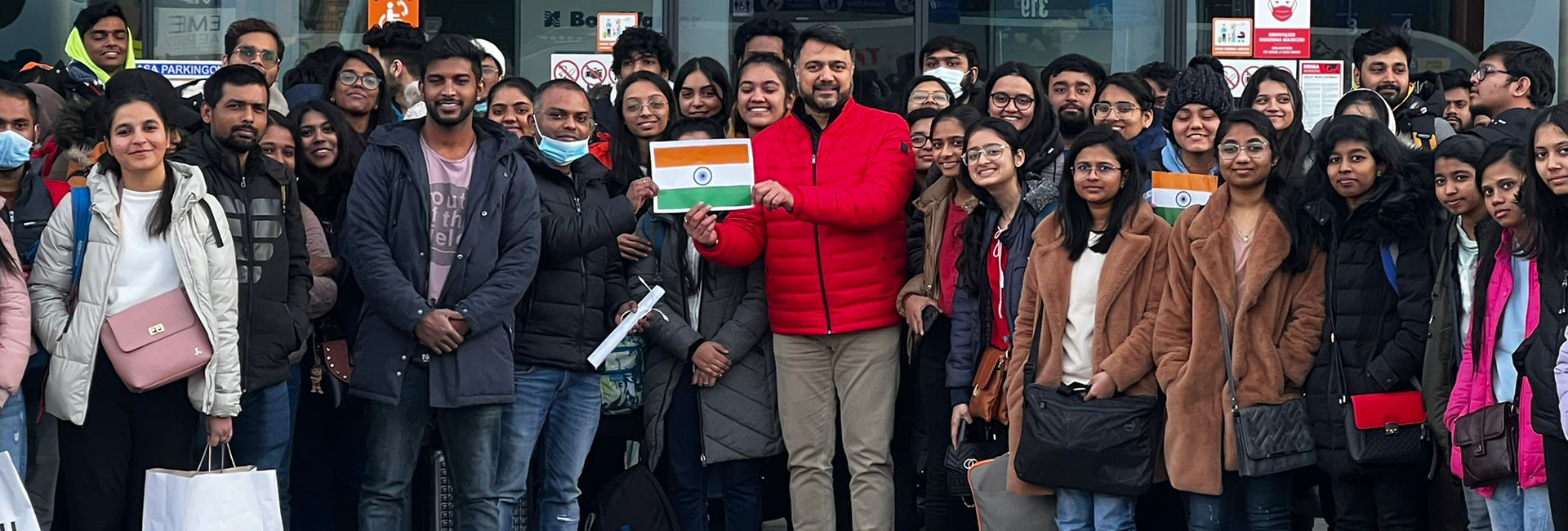
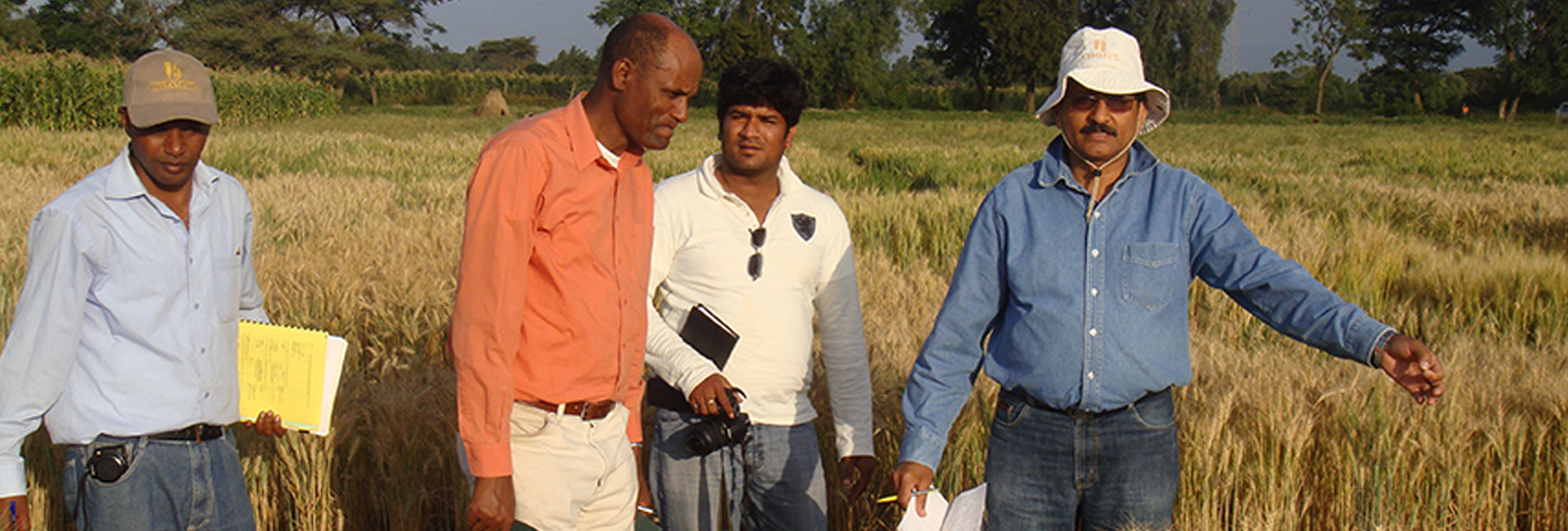
Didn’t knew about the 93 year old Virakesari (newspaper) and Thiru Sivakumar Nadesan till reading thus article. It is a great satisfaction to know that Virakesari is a foremost Tamil daily of Sri Lanka.
The world is full of untold stories. globalindian.com is taking great initiatives to introduce people to the uncharted zones. Thanks to Amrira for her masterpiece.